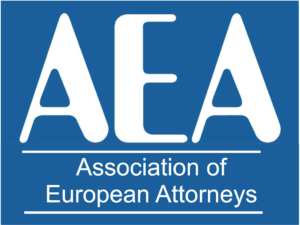This statement is already drawn like good wine.
While Estonia is preparing to outsource certain court decisions to robots, the question arises as to whether the lawyer of tomorrow will not also be replaced by a machine, a search engine, (i. e. Maître Algorithm Esq.)…
The apparent free nature of (multiple) search engines undoubtedly encourages those who use them…
Let us ask ourselves with humility: Can a robot or a search engine really replace the lawyer’s work? Can Google but not exclusively… challenge the monopoly of Lawyers in terms of advice and/or legal representation, for non-complex (or even complex) issues?
Similarly, will the SME or the individual, or even one who does not want to pay fees, first exhaust the simplest and free channels before turning to a legal professional? Or rather, considering the accelerated pace of the “subsidiarization” of the legal profession, are clients or prospects already out of the reach of law firms and their fees?
n this respect, we can try to comfort ourselves as much as we can with “populist” formulas: just because we can find medicines in a pharmacy does not mean we no longer need to consult our doctor…
In fact, and we know this well, the Lawyer, like other professionals, is already in the spotlight.
He must adapt: “think or disappear”.
Free service is the worst of its enemies, the clients who have deserted the firms, even taking responsibility for the failure of their actions but free of charge, or even reducing the bill before referral to a professional… the magistrates who are most often rightly annoyed by the irreducible pedantry of certain professionals, also contribute to this idea that the lawyer is not or no longer necessary.
Neither the monopoly of the law nor the mandatory representation by a lawyer before certain courts will reverse the trend.
- The lawyer’s monopoly on legal representation and assistance has long been recognized. Article 4 of the 1971 Act provides that:
“No one may, unless he is a lawyer, assist or represent the parties, apply for and plead before the courts and judicial or disciplinary bodies of any kind whatsoever, subject to the provisions governing lawyers at the Council of State and the Court of Cassation”.
But it is certain that with the gradual disappearance of pleading, designed as a tool to facilitate the interpretation of cases, disputes, or contracts, the Lawyer is in a precarious position as an interlocutor of justice, an auxiliary…
Therefore, it is not absurd in the light of the recurrent demands of judges to believe in the disappearance of the lawyer as an essential element of justice…. so we can comprehend without being a great cleric that is emerging:
- a world without legal representation of the parties in court,
- a world in which the judicial system will be completely dematerialized.
So in this debacle field, what about the Lawyer?
Will this world without a lawyer open the way to search engines and in particular Google, which would become the pro bono lawyer of the future, with robots replacing judges in their decision-making power?
Blade Lawyer is not far away. In the immediate future, 5 years away, everything will have changed.
If nowadays robots and search engines start to play a new role, their progress will undoubtedly be accelerated…
The human dimension could, it is true, for a time slow down progress. The bond of trust, the natural faith can also, and still can, resist… The deontology of the Lawyers, conceived as a fortress for the Orders of the Lawyers, is often presented as the ultimate safeguard.
However, it is also not absurd to think that the deontologist’s rules will be reproduced by search engines as general conditions of sale.
Then only professional secrecy would remain to deny Google or others the right to practice the Law.
This is also illusory, because lawyers and in-house lawyers are coming… as the proverb says, and the parody… a shared professional secret is already no longer a secret…
Article 54 of the aforementioned law, which provides that: “No one may, directly or through an intermediary, on a habitual and remunerated basis, give legal advice or draft private deeds for others”, shall therefore be gutted by the effect of time, the speed of exchanges and the consumerist wave affecting the law and professionals…
Add to this the Blockchain, which can easily replace the modes of contractualization, by securing them with monetary sanctions, automatically accepted (bitcoin, or official currencies) and even in the field of contracts, small or large mergers, investments, the Lawyer will have to adapt.
So the lawyer of tomorrow, Google or not Google? Google had told you Google how Google it is !!!!!

